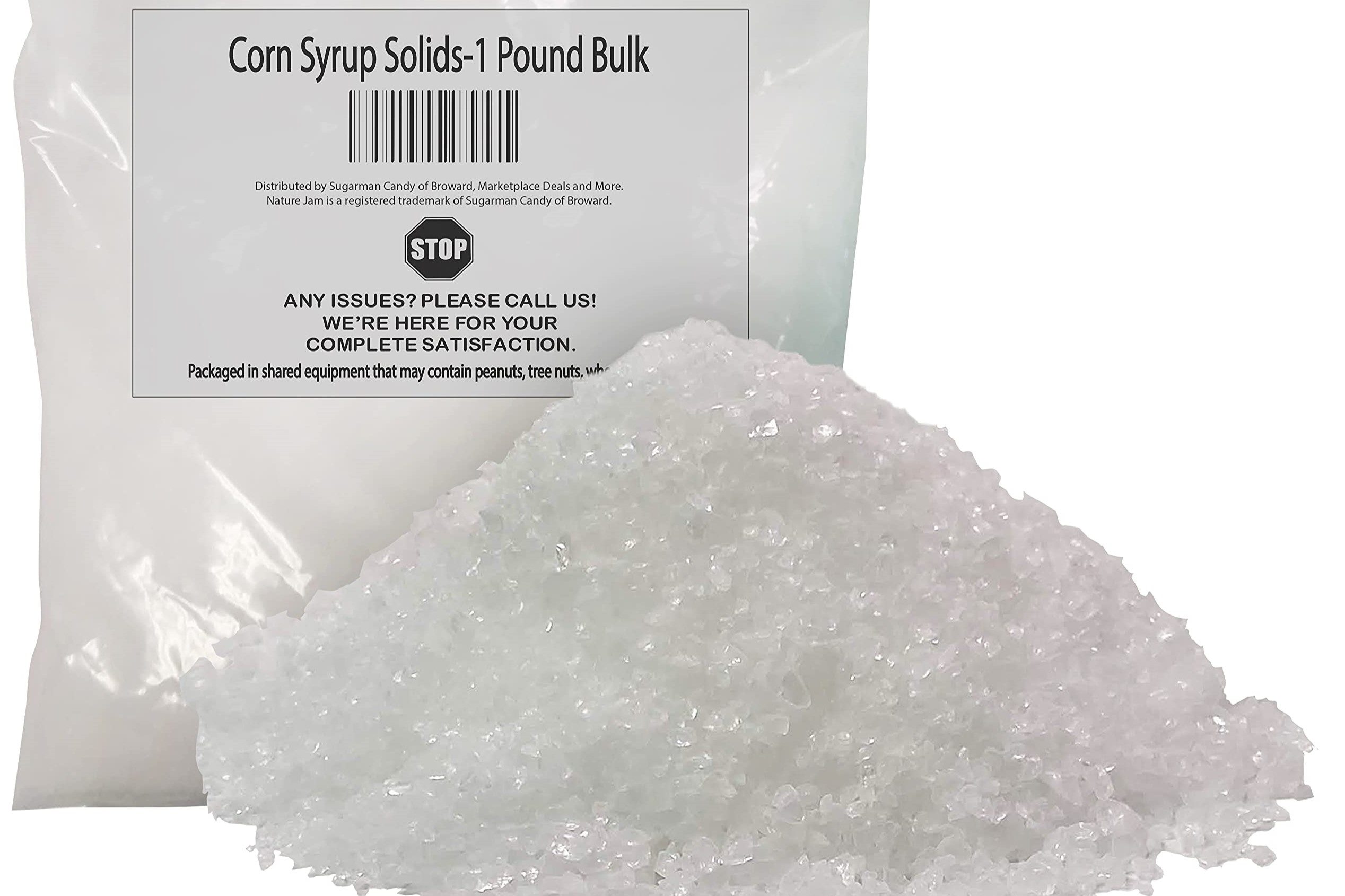
Corn syrup solids are a common ingredient found in a wide range of processed foods and beverages. They are derived from corn starch and undergo a process that removes the water content, leaving behind a concentrated powder. While corn syrup solids are known for their sweet taste, they also provide important nutritional components.
In this article, we will explore the nutrition facts of corn syrup solids and discuss their impact on our health. From calories and carbohydrates to vitamins and minerals, understanding the nutritional composition of this ingredient is essential for making informed dietary choices.
Whether you are curious about the caloric content of corn syrup solids or want to know about their carbohydrate profile, this article will provide you with a comprehensive overview of the nutritional benefits and considerations associated with this commonly used food ingredient.
Key Takeaways:
- Corn syrup solids are a concentrated form of corn syrup used as a sweetener and thickening agent in many processed foods. They have a high glycemic index and can contribute to weight gain if consumed excessively.
- When consuming foods with corn syrup solids, be mindful of their high sugar content and potential impact on blood sugar levels. Look for non-GMO options if you have concerns about genetically modified ingredients.
Corn syrup solids are a concentrated form of corn syrup.
Corn syrup solids are made by removing the moisture from liquid corn syrup, resulting in a powdered form. This makes it easier to handle and store, while still retaining the sweet properties of corn syrup.
Corn syrup solids are commonly used as a sweetener and thickening agent.
Due to its high sugar content and ability to dissolve in liquids, corn syrup solids are often used as a sweetening ingredient in various food and beverage products. Additionally, its thickening properties make it useful in providing texture and consistency to processed foods.
Corn syrup solids have a high glycemic index.
When consumed, corn syrup solids can cause a rapid increase in blood sugar levels due to their high glycemic index. This can be a concern for individuals with diabetes or those trying to manage their blood sugar levels.
Corn syrup solids contain calories and carbohydrates.
As a sweetener derived from corn, corn syrup solids do contain calories and carbohydrates. It’s important to be mindful of your consumption, particularly if you are following a low-calorie or low-carbohydrate diet.
Corn syrup solids are a source of energy.
Due to their carbohydrate content, corn syrup solids provide a source of energy for the body. However, it’s important to consume them in moderation as part of a balanced diet.
Corn syrup solids may contribute to weight gain.
Because of their high sugar content, excessive consumption of corn syrup solids can contribute to weight gain and increase the risk of obesity. It is essential to monitor your overall sugar intake and make healthier food choices.
Corn syrup solids do not contain fat or protein.
Corn syrup solids consist mainly of carbohydrates and do not contain significant amounts of fat or protein. Therefore, they do not contribute to the body’s fat or protein requirements.
Corn syrup solids can be found in various processed foods.
You can find corn syrup solids as an ingredient in a wide range of processed foods such as baked goods, cereals, dairy products, sauces, and beverages. It is important to read food labels to be aware of its presence in products you consume.
Corn syrup solids can have a long shelf life.
Due to their low moisture content, corn syrup solids have a long shelf life, making them a popular choice for food manufacturers looking to increase product longevity.
Corn syrup solids can be used as a substitute for liquid corn syrup.
In recipes that call for liquid corn syrup, corn syrup solids can be used as a substitute by reconstituting them with water. This can be especially helpful if liquid corn syrup is not readily available.
Corn syrup solids may be genetically modified.
It’s important to note that some corn syrup solids may be derived from genetically modified (GM) corn. If you have concerns about GM products, look for organic or non-GMO options when purchasing foods containing corn syrup solids.
Conclusion
Understanding the nutrition facts of corn syrup solids is essential for making informed dietary choices. While corn syrup solids may provide some calories and carbohydrates, it is important to consume them in moderation. The high sugar content of corn syrup solids can lead to health issues such as weight gain, diabetes, and tooth decay.
It is recommended to read food labels carefully and be aware of added sugars in products that contain corn syrup solids. Opting for whole, unprocessed foods and natural sweeteners like honey or maple syrup can be healthier alternatives. As with any ingredient, it’s crucial to consider your individual dietary needs and consult with a healthcare professional or nutritionist.
By being knowledgeable about the nutrition facts of corn syrup solids, you can make informed decisions about your diet and prioritize your health and wellbeing.
FAQs
1. Are corn syrup solids the same as corn syrup?
No, corn syrup solids are the dried form of corn syrup. They are produced by removing the water content from corn syrup, resulting in a concentrated powder.
2. Are corn syrup solids bad for you?
Corn syrup solids can contribute to health issues when consumed in excess. They are high in sugar and can lead to weight gain, diabetes, and dental problems if consumed in large quantities.
3. Can I substitute corn syrup solids with any other ingredient?
Yes, you can substitute corn syrup solids with natural sweeteners like honey, maple syrup, or agave nectar. However, it’s important to consider the recipe and the intended outcome as the texture and sweetness levels may vary.
4. Are corn syrup solids suitable for people with diabetes?
As corn syrup solids contain high levels of sugar, they should be consumed in moderation by people with diabetes. It’s advisable to consult a healthcare professional or a registered dietitian for specific guidance.
5. Can I find corn syrup solids in everyday food products?
Yes, corn syrup solids are commonly used as a sweetening agent in processed foods, baked goods, and beverages. Reading food labels can help identify if a product contains corn syrup solids.
6. Are there any health benefits to consuming corn syrup solids?
Corn syrup solids do not provide significant nutritional benefits. They mainly contribute to the flavor, texture, and sweetness of food products.
Was this page helpful?
Our commitment to delivering trustworthy and engaging content is at the heart of what we do. Each fact on our site is contributed by real users like you, bringing a wealth of diverse insights and information. To ensure the highest standards of accuracy and reliability, our dedicated editors meticulously review each submission. This process guarantees that the facts we share are not only fascinating but also credible. Trust in our commitment to quality and authenticity as you explore and learn with us.


